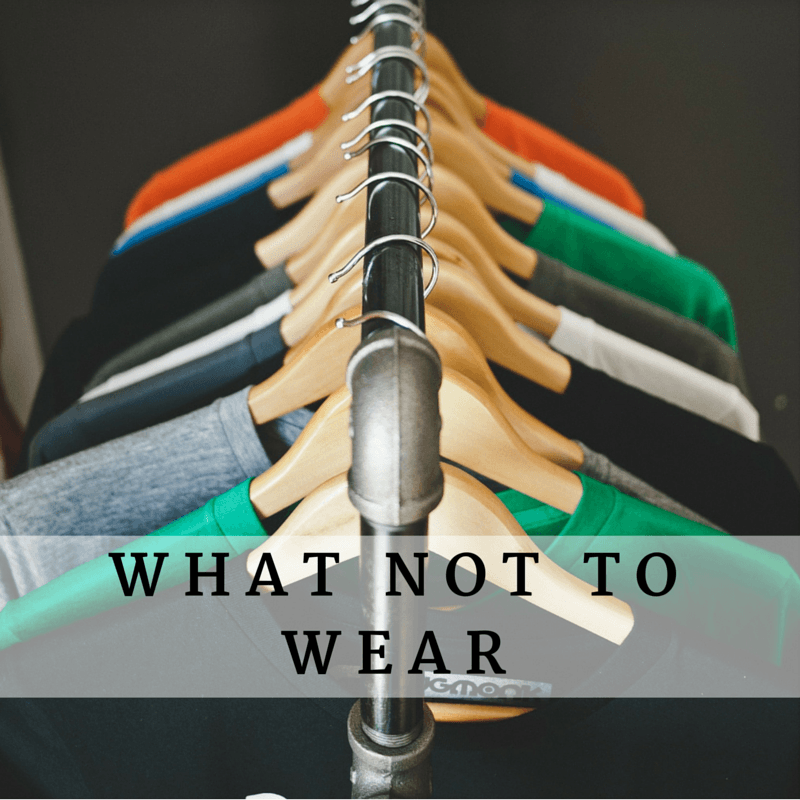
I was flipping channels the other night and found the series finale of “What not to Wear” on TLC. I used to love watching that show, wishing someone could help me figure out the whole appearance thing that was elusive for many years.
Working for the Marine Corps as a civilian, I didn’t have much in the way of role models. Women Marines had a uniform and were taught how to do hair and makeup. I had no such guidance and stuck with pants and sweater sets for years.
Our appearance can greatly impact our ability to influence. As leaders, influence is a major component of our success, so our appearance is more important than I realized when I was working for the Marine Corps.
I met a gentleman at a conference a few months ago, Tim Dokken, who shared a story with me about clothing choices. He was at work, lamenting that he would prefer to be wearing jeans and cowboy boots every day. The person he was speaking to responded “If you’re that good, you can wear whatever you want.”
How good do you have to be to make appearance a non-issue?
Well, how long does it take for someone to know how good you are? When I interviewed with my current company, I wore a suit. It was a business casual environment and my future manager said I could have dressed down for the interview. Not a chance.
There’s no redo on a first impression. Interview attire should align with how you want to be viewed as a future employee. Once you’re in the door, you can match attire to the office wear, as I have in the intervening years. What I wear should not detract from my brand, if you will, but my appearance is less important than established knowledge of my skill and ability.
Shouldn’t it be about what you know and not what you wear?
If we all looked, dressed, and spoke the same, then all that would differentiate us is what we know. We’d have to wait to create a first impression until words started coming out of someone’s mouth. But we don’t all look, dress and speak the same. First impressions are made in seconds, often before we speak a word.
Suppose someone wears something wrinkled, with stains on it, and has hair that isn’t brushed. We naturally draw conclusions. In this case, it may be that the individual is sloppy, doesn’t care how he or she looks and might be too lazy to bother. We may further surmise that their work product will be sloppy or of poor quality.
It’s entirely possible that this is a working mother, rushing out of the house to get a child to day care on time. The child spit up and she had no time or funds to get a replacement before running into you. She may very well have a solid work ethic, but is having a hell of a morning.
So, we’ve made a first impression that may be entirely wrong based on circumstance. Yet those first impressions can stay with us and impact our perception of that individual for some time. He or she must work twice as hard to recover from that initial interaction.
Sometimes you are that good.
This week, I will be speaking at the Women in Insurance Leadership Forum. Over the last 5 months of preparation, the focus has been entirely on content. Until the last week. Now, it’s all about appearance.
I went shopping for a dress, had my hair cut and got my nails done. I will generally look as put together as I know how to be, a long way from my Marine Corps days, when wearing a dress felt like playing grown up.
I compare my experience with my long-time friend and colleague, Michael Santarcangelo (the Catalyst), who was in town presenting several keynotes to executives last week. By the time we found each other, he was done for the day, having chucked his jacket and tie. He was still surrounded by CIO’s and I wondered about the relaxed attire.
I didn’t even have to ask why he felt comfortable. Michael knows his stuff and is an established expert in his field. It wouldn’t matter if he was in shorts and a t-shirt. I could tell by the way they came up to him later – they were all focused on him, not his clothing.
Other times, it isn’t about you.
In theory, I could go into the conference this week in a potato sack, thinking that my words will matter more than what I wear. But I know I’d be uncomfortable. I believe women feel more comfortable and confident if we are comparably dressed to others in the room.
It is easier to focus on what we are saying if our clothing is already giving a message of confidence. Even when we know our stuff.
My other consideration is why I am there. I will walk into the room as an agent of my company, co-presenting with one of my company’s executives. If my appearance is not appropriate, it diminishes my company’s brand and hers. So in this case, wearing a potato sack would be detrimental, regardless of what I know.
Do you think appearance matters? If it does, how good do you need to be until appearance doesn’t matter? I’d love if you could share your feedback and experience in the comments and keep the conversation going.








